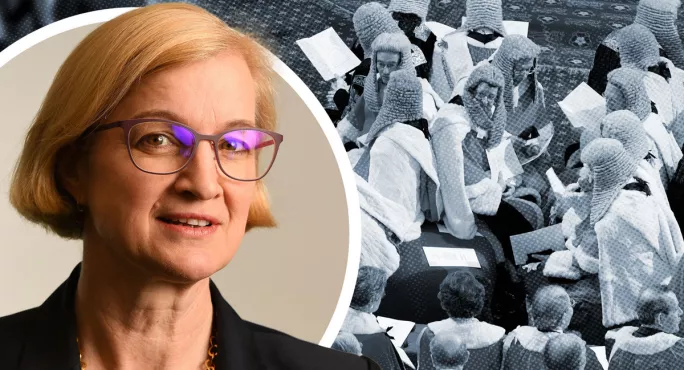Ofsted chief inspector Amanda Spielman is to face questions from members of the House of Lords on why the government’s English Baccalaureate (EBacc) target is important for schools.
She is giving evidence on Thursday to the Lords Education for 11-16 Year Olds Committee as it continues to look at the school accountability system in England.
Her appearance at the committee comes at a time when Ofsted is facing major scrutiny over its school inspections following the sector’s reaction to the death of headteacher Ruth Perry.
And the Commons Education Select Committee announced last week that it was launching its own inquiry into school inspection, including Ofsted’s use of single-word inspection grades and the impact of inspection on teacher wellbeing and workload.
Meanwhile, the Lords select committee, focused on the school accountability system, has said possible questions for Ofsted on Thursday will include asking why a school’s progress towards the government’s national ambition for EBacc entry is important.
The EBacc is a government performance measure aimed at encouraging schools to enter students for GCSEs in traditional academic subjects.
To achieve the EBacc, a student needs to complete English, maths, two sciences, history or geography and a modern foreign language.
The government had set a target of 75 per cent of students to achieve the EBacc by 2022 and for 90 per cent to do so by 2025.
This is a national target, rather than a school-level one. However, last year, Nick Gibb, speaking to Tes before he returned to the role of schools minister, suggested that Ofsted should not judge a school’s quality of education to be “good” if its take-up of EBacc subjects was below the national average.
On Thursday, peers plan to ask Ms Spielman to what extent Ofsted judgements are about “the quality of a school’s education in the 11-16 phase based on that school’s performance against the headline key stage 4 accountability measures, particularly Progress 8 and EBacc entry”.
And the committee has said it could also ask how Ofsted balances expectations “for pupils to be allowed to gain qualifications that allow them to meet their interests and aspirations” with the expectation that a school should “have the EBacc at the heart of its curriculum”.
Ofsted makes several mentions of the EBacc in its school inspection handbook.
It says: “Inspectors will not make a judgement about the quality of education based solely or primarily on the school’s progress towards the EBacc ambition. Nevertheless, it is an important factor in understanding a school’s level of ambition for its pupils.”
In Ofsted’s grade descriptors for schools achieving a “good” rating for quality of education, it says that secondary schools will teach “a broad range of subjects (exemplified by the national curriculum) throughout Years 7 to 9”.
It adds: “The school’s aim is to have the EBacc at the heart of its curriculum, in line with the DfE’s ambition where this applies, and good progress has been made towards this ambition.”
Ofsted’s national director for education, Chris Russell, will also be giving evidence at Thursday’s session.




